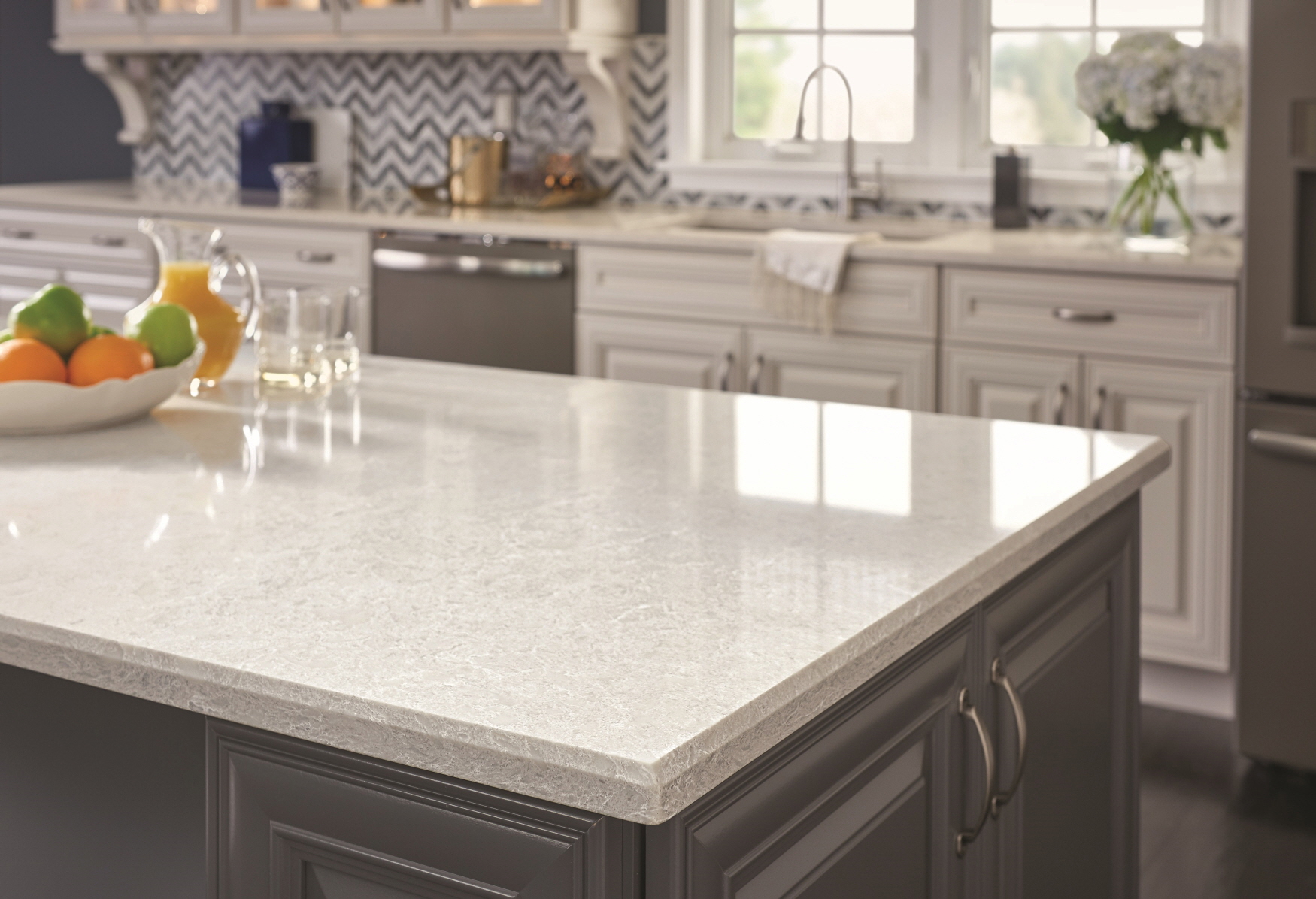Choosing the right material for your kitchen countertops is a crucial decision that can significantly impact the aesthetics, functionality, and value of your home. In this blog, we will provide an in-depth comparison of quartz and marble countertops to help you make an informed decision.
Both quartz and marble offer unique characteristics and advantages, but they also have distinct differences that are important to consider. We will explore their pros and cons, aesthetic differences, durability, maintenance requirements, cost, and more.
By understanding the key differences between quartz and marble, you can choose the best countertop material for your home.
Pros and Cons of Quartz Countertops
Quartz countertops, also known as engineered stone countertops, offer several advantages due to their manufacturing process. They are crafted from a blend of natural quartz crystals and resins, resulting in a durable and versatile material. Here are some key benefits of quartz countertops:
- Durability: Quartz countertops are highly durable and resistant to scratches, stains, and heat. This makes them perfect for high-traffic areas like kitchens where spills and cooking activities are common.
- Low maintenance: Unlike natural stones like marble, quartz countertops require minimal maintenance. They do not need to be sealed regularly, saving homeowners time and effort.
- Variety of colors and patterns: Quartz countertops offer a wide range of colors and patterns to choose from. This allows homeowners to find the perfect match for their kitchen decor and achieve the desired aesthetic.
- Consistency: One of the notable advantages of quartz countertops is their consistency in color and pattern. This uniformity makes it easier to create a cohesive look in your kitchen design, ensuring a polished and harmonious appearance.
Despite their numerous advantages, there are a few disadvantages to consider when it comes to quartz countertops:
- Limited heat resistance: Although quartz countertops are generally heat-resistant, it’s important to note that extreme heat can cause damage. To protect the surface, it is recommended to use trivets or hot pads when placing hot objects on the countertop.
- Not completely natural: For some homeowners, the fact that quartz countertops are engineered may be a drawback. Those who prefer the authenticity of natural stone countertops may view quartz as less desirable.
Pros and Cons of Marble Countertops
Marble countertops are a timeless and elegant choice for kitchen countertops, cherished for their natural beauty and distinctive veining patterns. Here are some key advantages of opting for marble countertops:
- Aesthetic appeal: Marble countertops exude unparalleled elegance and sophistication. Their natural variations in color and veining create a luxurious and visually striking focal point in any kitchen design.
- Heat resistance: Marble is naturally heat-resistant, which makes it an excellent choice for those who frequently use hot pans and trays. You can confidently place hot objects directly onto marble countertops without worrying about damaging the surface.
- Increases home value: Marble countertops are often seen as a premium feature in real estate listings. By installing marble countertops in your kitchen, you can potentially enhance the resale value of your home.
While marble countertops have numerous advantages, it’s important to consider the following disadvantages:
- Porosity: Marble is a porous material and can be susceptible to staining if not adequately sealed and maintained. Promptly wiping up spills is essential to prevent any potential staining.
- Scratch and etch prone: Compared to materials like quartz, marble is softer and more prone to scratching and etching. To preserve the surface, it’s advisable to avoid cutting directly on the countertop and refrain from using abrasive cleaners that could damage the finish.
Quartz vs Marble Countertops Comparison
To help you make an informed decision for your home renovation project, let’s dive into a comprehensive comparison between quartz and marble countertops:
- Aesthetic Differences: Quartz countertops generally offer a more consistent appearance with uniform colors and patterns, while marble countertops feature unique veining and variations that add character and charm to the space.
- Installation & Durability: Quartz countertops are heavier and require professional installation due to their weight, but they are more durable and better resistant to scratches, stains, and heat than marble countertops.
- Maintenance & Repairs: Marble countertops require regular sealing to protect against stains and etching, whereas quartz countertops are virtually maintenance-free and don’t require sealing.
- Cost & Resale Value: Quartz countertops tend to be more affordable than marble, both in terms of initial cost and long-term maintenance. Nonetheless, marble countertops can increase the resale value of your home due to their premium appeal.
- Stain & Scratch Resistance: Quartz countertops are highly resistant to stains and scratches, making them ideal for busy kitchens. Meanwhile, marble countertops are more vulnerable to staining and scratching and require more careful maintenance.
- Hygienic & Environmental Impact: Both quartz and marble countertops are non-porous and have hygienic surfaces that are resistant to bacteria and mold growth. Nevertheless, quartz countertops may have a slightly lower environmental impact due to their engineered nature and the use of recycled materials in some products.
Both quartz and marble countertops present distinctive advantages and aesthetic appeal, contributing to their popularity in kitchen renovations. The choice between quartz and marble hinges on personal preferences, budget, and lifestyle considerations. If you’re still uncertain about which countertop material is best suited for your home, consider seeking guidance from a professional countertop provider such as LX Hausys. With our expertise and extensive range of countertop options, including scratch-resistant surfaces, LX Hausys can assist you in identifying the ideal solution for your kitchen renovation requirements.
